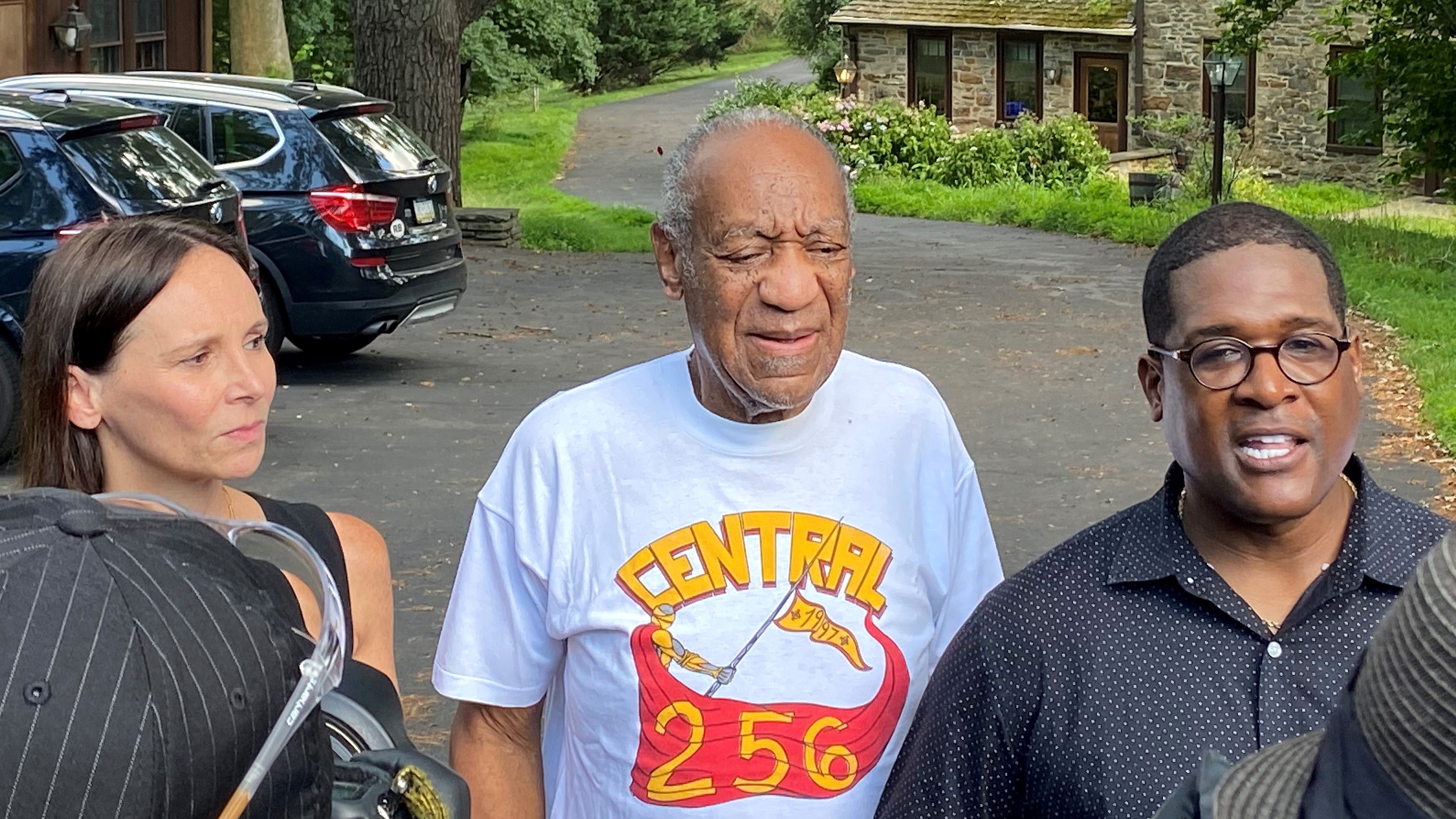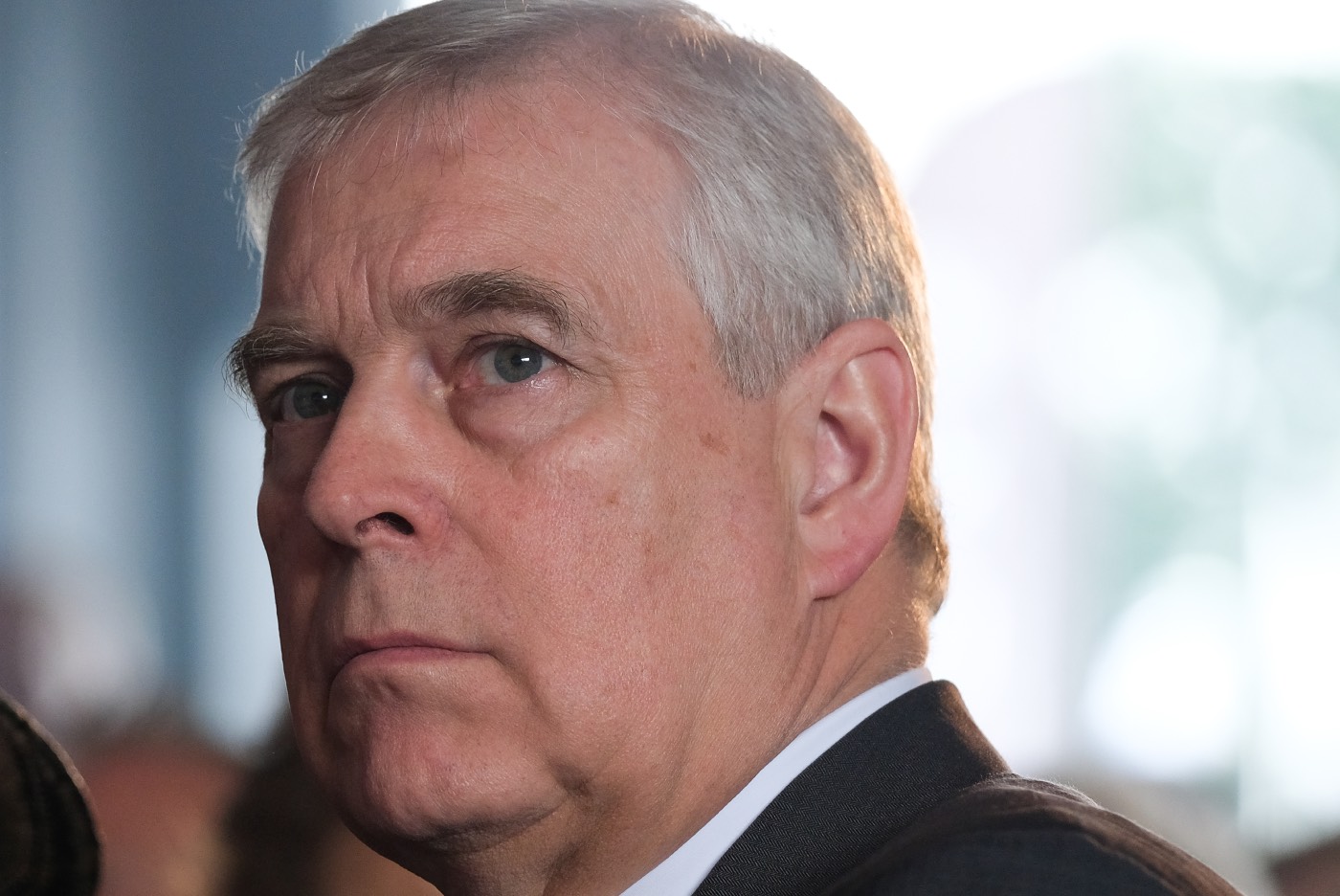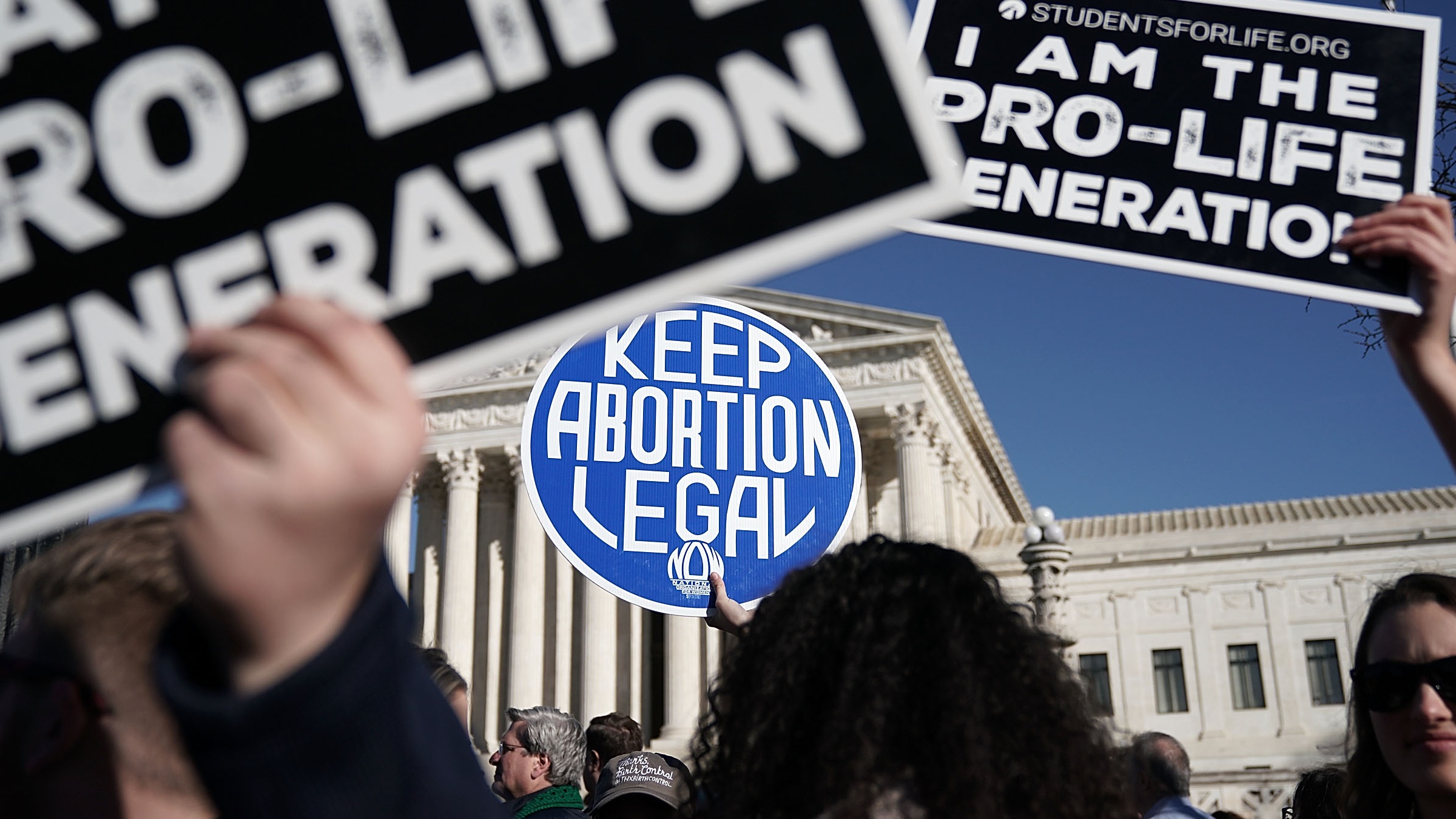Explained: why Bill Cosby is walking free after sexual assault conviction
Surprise reversal of actor’s ten-year prison sentence met with ‘shock and fury’

A free daily email with the biggest news stories of the day – and the best features from TheWeek.com
You are now subscribed
Your newsletter sign-up was successful
Bill Cosby was released from prison yesterday after serving just two years of a maximum ten-year sentence for sexual assault.
In “a stunning turnaround”, Pennsylvania’s highest court overturned his conviction after ruling that a “non-prosecution” agreement with a previous prosecutor “should have barred the entertainer from facing any charges” in the case, which “marked the first high-profile celebrity trial of the #MeToo movement”, says the Los Angeles Times (LA Times).
The decision has triggered “widespread shock and fury”, The Guardian reports, “particularly in and around Hollywood, where the comedian was once a sitcom titan known as ‘America’s Dad’”.
The Week
Escape your echo chamber. Get the facts behind the news, plus analysis from multiple perspectives.

Sign up for The Week's Free Newsletters
From our morning news briefing to a weekly Good News Newsletter, get the best of The Week delivered directly to your inbox.
From our morning news briefing to a weekly Good News Newsletter, get the best of The Week delivered directly to your inbox.
‘Process violation’
The non-prosecution agreement was made after Canadian former basketball star Andrea Constand came forward in 2014 with allegations that Cosby had drugged and assaulted her at his Philadelphia home a decade earlier.
Cosby “had been a mentor” to Constand, then employed at the city’s Temple University employee, the LA Time reports. In the wake of her claims, he was arrested in 2015, and found guilty of three counts of felony indecent assault by a jury in 2018.
After being sentenced to between three and ten years in state prison, however, the actor is now free following the ruling by a panel of Pennsylvania State Supreme Court judges yesterday.
A free daily email with the biggest news stories of the day – and the best features from TheWeek.com
“The judges’ reasoning is complex - their written finding is 79-pages long,” says the BBC.
But the decision centres around a non-prosecution agreement struck with Montgomery County District Attorney Bruce L. Castor Jr in 2005. The attorney gave Cosby his “assurance that he would not be charged in the case”, The New York Times (NYT) reports.
“Castor testified that while there was insufficient evidence to bring a criminal prosecution, he had given Mr Cosby the assurance to encourage him to testify in a subsequent civil case brought by Ms. Constand,” the paper adds.
According to court records, “there was no evidence the immunity promise was ever put in writing”, says the LA Times.
Cosby subsequently made “several incriminating statements” during depositions that were later used by Castor’s successor in the 2018 prosecution, including admitting that he gave sedative drugs called quaaludes “to women he was pursuing sexually”, the paper continues.
The appeals ruling said that “in light of these circumstances”, the subsequent decision by successor district attorneys “to prosecute Cosby violated Cosby’s due process rights”.
“The court’s decision precludes any future prosecution,” the LA Times adds. And while legal experts have highlighted “the singularity of the agreement”, campaigners fear that judgment could “have a chilling effect for survivors of sexual assault, dampening the accountability achieved through the #MeToo movement”.
Cosby was criminally charged after reaching a $3.4m (£2.4m) settlement with Constand in her civil case. But he later “vowed to serve all ten years” of his prison sentence “rather than acknowledge any remorse for his actions”, The Guardian says.
‘Not justice’
Following his release on Wednesday, the 83-year-old former Cosby Show star “appeared frail as he slowly walked to waiting media outside his home” in the Philadelphia suburb of Elkins Park, the BBC reports. Cosby remained silent, “leaning on his team of lawyers and spokesperson Andrew Wyatt to answer questions”, the broadcaster says.
“On this hot day, this is a hot verdict for us,” Wyatt told reporters. “Mr Cosby has always used his celebrity and his name to uplift women... How could a man who is being watched by the FBI every day be raping and drugging women… especially a black man?”
Cosby later tweeted a statement thanking the “Pennsylvania Supreme Court for upholding the rule of law”, and “all my fans, supporters and friends who stood by me through this ordeal”.
“I have never changed my stance nor my story,” he wrote. “I have always maintained my innocence.”
The actor faced a torrent of allegations after Constand filed her civil lawsuit, with around 60 women coming forward between 2014 and 2015 “with similar allegations of drugging and assault”, the BBC says. However, “local authorities knew that statute of limitation rules meant they could not pursue the majority of these accusations”.
“At the end of the day, rulings like this mean survivors of sexual abuse will be less willing to step forward, afraid that the legal system is stacked against them,” attorney Elizabeth Fegan, who is representing women in a civil case against Hollywood producer Harvey Weinstein, told the LA Times.
Fegan’s warning was echoed by Scott Berkowitz, president of the Rape, Abuse and Incest National Network. In a statement yesterday, Berkowitz said that he was “deeply disappointed” by the ruling and by “the message this decision sends to the brave survivors who came forward to seek justice for what Bill Cosby did to them”.
“This is not justice,” he added.
‘Why women do not come forward’
The decision to overturn Cosby’s conviction has also been criticised by a string of celebrities, many of whom have used social media to voice their anger.
Actor Amber Tamblyn tweeted: “I personally know women who this man drugged and raped while unconscious. Shame on the court and this decision.”
E. Jean Carroll, one of the women to have accused former president Donald Trump of sexual assault, wrote: “THIS is why women do not come forward.”
Actor Ellen Barkin said the decision was “heartbreaking for all survivors”, while fellow actor Debra Messing tweeted: “To every woman who was sexual assaulted by #BillCosby my heart hurts for you today and I am full [of] fury. It’s horrifying.”
Meanwhile, Women in Film, a campaign group for greater equality in the screen industries, warned that the appeals ruling was “a setback in the fight for justice for sexual assault survivors”.
“When the system disregards dozens of accusers in a situation like this - because of a technical loophole, not because of the proof that led to sentencing - it creates the perception that it’s ‘not worth it’ for victims to come forward,” the campaigners said in a statement.
Some celebrities have offered words of support for Cosby, however.
Phylicia Rashad - who played Cosby’s wife on his eponymous show between 1984 to 1992 - tweeted: “FINALLY!!!! A terrible wrong is being righted- a miscarriage of justice is corrected!”
Following a fierce backlash, she later posted another tweet in which she said that “I fully support survivors of sexual assault coming forward. My post was in no way intended to be insensitive to their truth.
“Personally, I know from friends and family that such abuse has lifelong residual effects. My heartfelt wish is for healing.”
-
 The ‘ravenous’ demand for Cornish minerals
The ‘ravenous’ demand for Cornish mineralsUnder the Radar Growing need for critical minerals to power tech has intensified ‘appetite’ for lithium, which could be a ‘huge boon’ for local economy
-
 Why are election experts taking Trump’s midterm threats seriously?
Why are election experts taking Trump’s midterm threats seriously?IN THE SPOTLIGHT As the president muses about polling place deployments and a centralized electoral system aimed at one-party control, lawmakers are taking this administration at its word
-
 ‘Restaurateurs have become millionaires’
‘Restaurateurs have become millionaires’Instant Opinion Opinion, comment and editorials of the day
-
 Trump and his lawyer Alina Habba have a rough day in defamation court
Trump and his lawyer Alina Habba have a rough day in defamation courtSpeed Read Trump's audible grousing as E. Jean Carroll testified earned him a warning he could be thrown out of court, and Habba showed she 'doesn't know what the hell she's doing'
-
 Prince Andrew accused of ‘playing hide and seek’ to avoid sex assault lawsuit
Prince Andrew accused of ‘playing hide and seek’ to avoid sex assault lawsuitfeature But US judge rules legal papers can be served to Duke of York’s LA-based lawyers
-
 Explained: the anti-abortion challenge to Roe v Wade
Explained: the anti-abortion challenge to Roe v Wadefeature Supreme Court may overturn landmark reproductive rights ruling, leak suggests